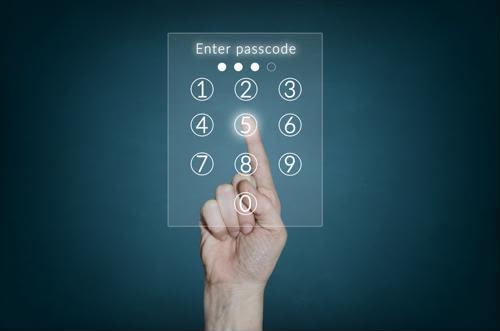- Home
- Resources
- Amerhart Insider Blog
- News & Commentary
- Cybersecurity for contractors
Cybersecurity for contractors

At Amerhart, we value every contractor who works with us and our affiliated partners. The work we do is important - but what you do is even more so. You literally build people's homes, their futures and, in some cases, their livelihoods. In order to do this, you need all the best tools and materials we can provide.
One topic that is not commonly discussed in home construction is cybersecurity, or the protection of electronic devices against unauthorized and often malicious access. We know this sounds technical and you may be wondering: what does this have to do with building homes?
The unfortunate reality is that going forward, everyone will be affected by cybersecurity. At Amerhart, we wanted to take a moment and make you aware of the current state of the construction market so that you can take whatever steps necessary to avoid disaster and keep doing the work you love.
Why contractors are a target
Part of what may make you vulnerable is your belief that you're not a target. After all, the news reports on cyber attacks mention places like hospitals and government agencies - where whole swaths of confidential data is stored. Why would any cybercriminal even think of you?
Well, according to Construction Executive, many contractors are uneducated on the issues of cybersecurity and hackers are exploiting this. It's like building a house for someone who is moving to a new area. If a family has lived in Phoenix their whole lives, they may underestimate the need for moisture protection and to waterproof their home in coastal Massachusetts. This would make their house an unprotected target for floods and other disasters unless you educated them to think otherwise.
As a contractor, you do handle confidential information. Credit card numbers, bank accounts, personal addresses, and client contact information are all at your disposal. This information is of value to hackers and, unlike traditional criminals, there is no limit to how many contractors or construction personnel can be targeted in a single attack.
 Home contractors tend to be focused on pleasing clients and maintaining a living. Cybercriminals are taking advantage of this focus.
Home contractors tend to be focused on pleasing clients and maintaining a living. Cybercriminals are taking advantage of this focus.
Safely handling IoT devices during renovation and construction
Technology has changed a lot over the last decade. It's hard to believe that the first iPhone was unveiled just over 10 years ago. Since then, smartphones have become nearly universal. Everyone has them because they're so useful, providing features including apps like calendars, measuring equipment, and even room layout design tools.
A smartphone is an internet of things device, essentially a computer in your pocket. Part of protecting yourself from cybercriminals means protecting your mobile device. Use a password at all times, preferably two if the hardware allows it (many new phones have fingerprint or facial ID scan). Also be wary of the Wi-Fi connection you use. Networks without password authentication can be accessed by everyone, including hackers who are looking to see what your internet traffic is and if you're sending or receiving any valuable data.
IoT devices like smartphones and tablets are only going to be more common in the coming years. Although they look radically different, you need to remember that each is a computer, just like a desktop. If any contain your email or payment information, they are treasure troves of confidential data that outside parties may try to steal (through cyber or practical means).
If you're ever selling or getting rid of this equipment, be sure to wipe its data thoroughly before you let it out of your sight.
Beware of phishing
Phishing has been around for years, using every method of communication available. Fraudulent letters and phone calls from lost relatives or un-entered lotteries are nothing new. However, like the rest of the world, phishing has been upgraded. A new technique, called spear phishing, occurs when a fraudulent email goes out of its way to appear real.
According to Kaspersky lab, this type of cyberattack is used most often to steal personal information or install malware onto your device. These communications, typically emails, may pose as a client, local bank employee, or another reliable figure. They typically have an intense, sometimes threatening tone and contain clickable links. If you ever find yourself with a suspected phishing email, don't respond and certainly don't click any of its links (this is how malware gets installed).
Instead, consult a trusted source. Phishing tends to fall apart the more you think about it. Remember, certain information like credit card numbers and bank account information never goes into emails, so this is an obvious red flag.
Cybersecurity may be a head-scratcher but it isn't impossible to understand. You don't need to be an expert, just cautious. Going forward, it's important to remember that we're all on the same side against hackers and cybercriminals who want to steal personal information.
If you're hacked, your business will suffer, you may have to pay legal fines, and you could lose the valued trust that you've built with your clients. At Amerhart, we believe in doing our part to prevent these new crimes from happening. Please spread the word and increase cybersecurity awareness.














